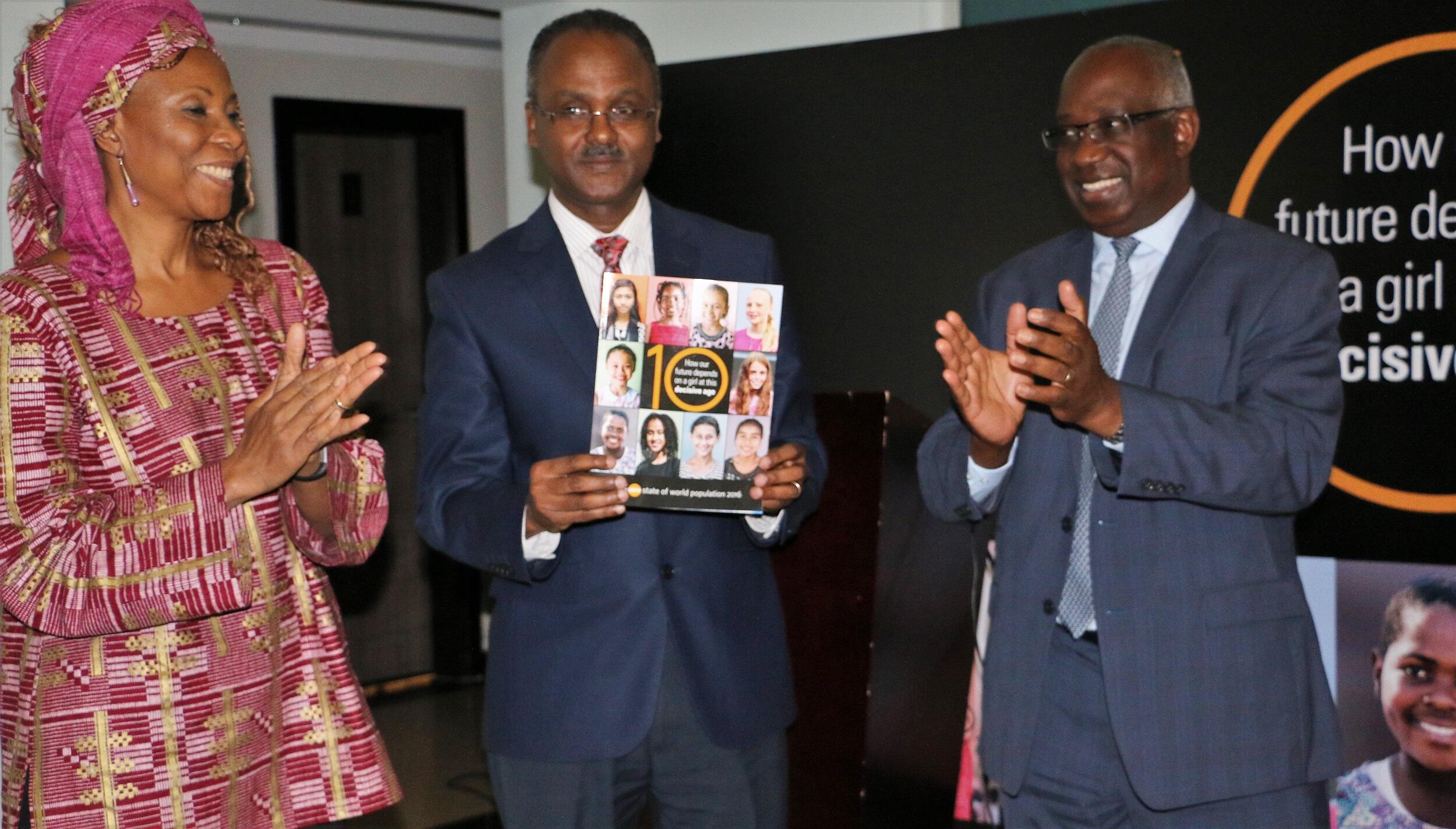The State of World Population 2016 report bearing the theme “10: How our future depends on a girl at this decisive age” was launched at an event organized today. The report notes that of the 125 million 10-year-olds today, 60 million are girls who are systematically disadvantaged at the global level as they move through adolescence into adulthood. Forced marriage, child labor, female genital mutilation and other harmful practices undermining girls’ health and rights threaten the world’s ambitious development agenda, warns the report.
Speaking on the occasion, H.E. Dr. Abraham Tekeste, Minister of Finance and Economic Cooperation of Ethiopia, underlined the need to invest in girls education to empower and make them active players in the development endeavor of the country. He underlined the government’s unwavering commitment on this. H.E. Woizero Demitu Hambisa, Minister of Women and Children Affairs, said on the occasion that obstacles such as harmful practices impeding the progress of girls and women need to be earnestly addressed and called on all partners to lend their unreserved support on this.
The State of World Population 2016 highlights that practices that harm girls and violate their human rights--starting at age 10--prevent them from realizing their full potential as adults and from contributing to the economic and social progress of their communities and nations. Without their contribution, the United Nations Agenda 2030 for Sustainable Development and its accompanying 17 Sustainable Development Goals may never be achieved. Removing the barriers that hold 10-year-old girls back today will increase the chances that the agenda will be a success, the report argues.
Ms. Ahuna Eziakonwa, United Nations Resident Coordinator and UN Humanitarian Coordinator in Ethiopia, stated in her remarks that empowering girls and women and strengthening their participation in decision-making is at the heart of the 2030 Sustainable Development Agenda. “Investing in adolescent girls is one of the smartest ways to secure a better and more sustainable future for all” she remarked. When a girl enjoys her rights, is able to stay in school, stay healthy and is protected from child marriage and early pregnancy - she has a better chance of realizing her full potential by the time she reaches adulthood, noted Mr. Faustin Yao, UNFPA Country Representative in the remarks he delivered at the event. He added that girls who reach adulthood with an education and their health and rights intact stand to triple their lifetime income.
The State of World Population 2016 highlights that 21 billion a year dividend for developing countries can be unlocked in the next 15 years if all 10-year-old girls complete secondary education.
The major highlights of the State of World Population 2016 were presented to the participants of the event. YEGNA – a music group of young girls – presented music performance related to the theme of the report.


